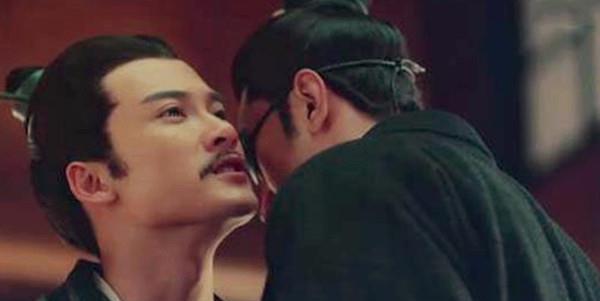In 263, Sima Zhao gathered the troops of the four sides and divided the troops into three ways to attack the Shu Han. Because Jiang Wei, who was the commander-in-chief, did not farm in Hanzhong, when Cao Wei's main army attacked Hanzhong, the Shu army in Hanzhong directly followed Jiang Wei's previous instructions and shrunk into the two cities of Hanle, and Hanzhong did not attack itself. After this, Jiang Shu, the defender of Yangping Pass, surrendered to Cao Wei, and Yangping Pass was also lost. At this time, except for Hancheng and Lecheng Pass, the other cities and pools in Hanzhong were in the hands of the Wei army, and Hanzhong had actually fallen into the hands of the Wei army. Although Jiang Wei later managed to escape from the encirclement and garrisoned the Sword Pavilion, thus blocking the Cao Wei army led by Zhong Hui, due to the large loss of grain and grass transported from Guanzhong to the Sword Pavilion, Zhong Hui, who was blocked in the Sword Pavilion, had the idea of retreating for a while. At this moment, Deng Ai proposed a plan to smuggle yinping, he immediately led the army from Yinping, through the no-man's land of Shudi, and appeared in Jiangyou, because Jiangyou's defenders surrendered without a fight, Deng Ai's army received supplies, and defeated Zhuge Zhan's father and son with a single blow, and the army approached Chengdu, Liu Chan saw that the general trend had gone, and could only go out of the city and surrender, and Shu Han eventually perished.

If you count from 221 AD Liu Bei as emperor, the Shu Han regime before and after forty-two years, in contrast, the life span of Eastern Wu is longer than that of Shu Han, in 229 AD, Sun Quan ascended the throne as emperor, until 280 AD Sun Hao surrendered, his state is fifty-one years, and if you count from the establishment of the regime, the Shu Han regime should be counted from the beginning of the Battle of Chibi in 208 AD, Liu Bei gradually occupied part of Jingzhou, and the Eastern Wu regime should be counted from 197 AD when Sun Ce rebelled against Yuan Shu and became officially independent. For more than eighty years, the time of Eastern Wu was still much longer than that of Shu Han. Why did Eastern Wu live longer than Shu Han?
The first period of life of Eastern Wu should be from 197 AD to 208 AD, when Cao Cao and Yuan Shao fought in the Central Plains, so there was no prince to estimate jiangdong for the time being, and later after Sun Quan succeeded to the throne, he maintained respect for the central government in addition to destroying Shanyue and harassing Liu Biao, so Eastern Wu was able to maintain a superficial peaceful relationship with various princes at that time. During this period, the greatest crisis in Eastern Wu was the rebellion of Zhou Shu and Sun Yi and others, but because Cao Cao did not interfere in the matter, Sun Quan was able to successfully resolve it.
The second period of life of Eastern Wu was between 208 AD and 219 AD, because in the Battle of Chibi, Eastern Wu defeated Cao Cao as the main combat force, so Sun Quan's prestige soared, between which Cao Cao and Sun Quan fought many times, although Sun Quan failed to help Cao Cao, but Cao Cao also did not help Sun Quan, and at that time the Jingzhou army shared the Yangtze River defense line, so that the overall situation within Eastern Wu was still very stable, during this period, Eastern Wu gradually encroached on part of the territory of Jingzhou and Jiaozhou. In order to compete for Jingzhou, Sun Quan's two sneak attacks on his ally Liu Bei without a face made the power of Eastern Wu soar.
In the third period of Eastern Wu's lifespan, that is, from 220 AD to 252 AD, Sun Quan won the Battle of Yiling and the war against Cao Pi successively, because Sun Quan had been wandering between the rebels and the rebels, and had become more and more comfortable, so during this time, the national strength of Eastern Wu did not lose much, but became more and more stable. When the post-Eastern Wu era came from 252 to 280 AD, because Sun Quan had laid a good enough foundation for Eastern Wu, even if there was a drastic coup d'état triggered by Zhuge Ke and others, Eastern Wu did not collapse immediately, but although Sun Hao, who later succeeded to the throne, had certain abilities, he was tyrannical and faint after the grip of power, and Eastern Wu gradually went downhill, and it was only a matter of time before he was defeated by the Jin State.
The author believes that the reason why Eastern Wu was able to last longer than the Shu Han was on the one hand because Sun Quan governed properly, and on the other hand, because the strong enemies in the north at that time had to deal with more important opponents and could not concentrate on dealing with Eastern Wu, such as Yuan Shao and Liu Biao in the early days, Shu Han and Liaodong in the middle period, and so on. Moreover, after the fall of the Shu Han Dynasty, the northern regime once had indigestion of Yizhou, coupled with internal disputes, which gave Eastern Wu the possibility of respite and continuation.